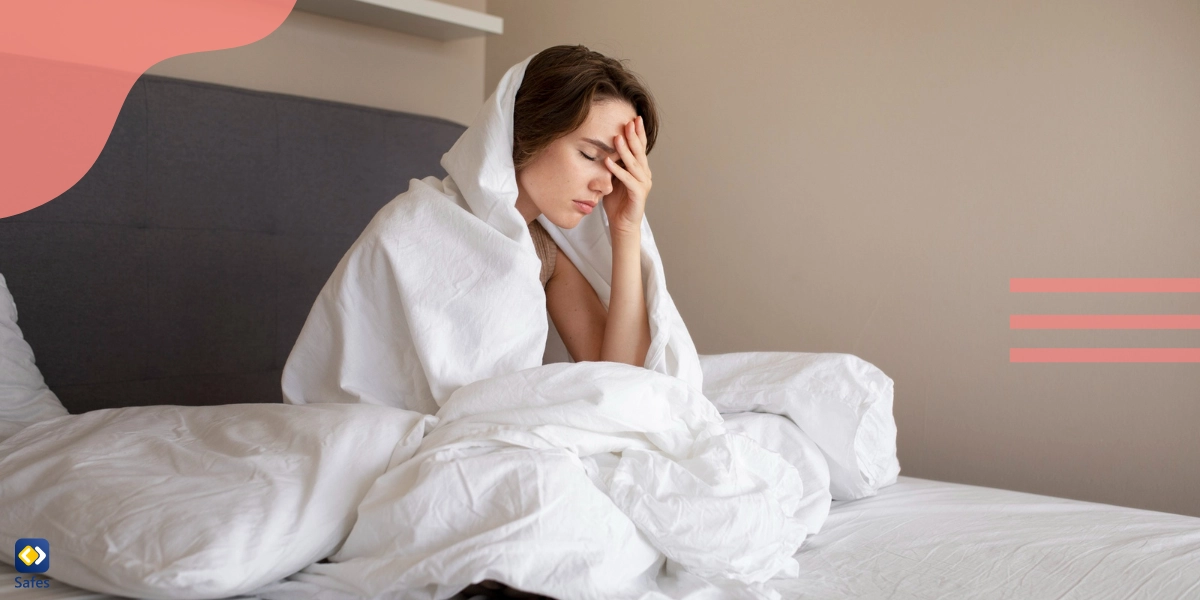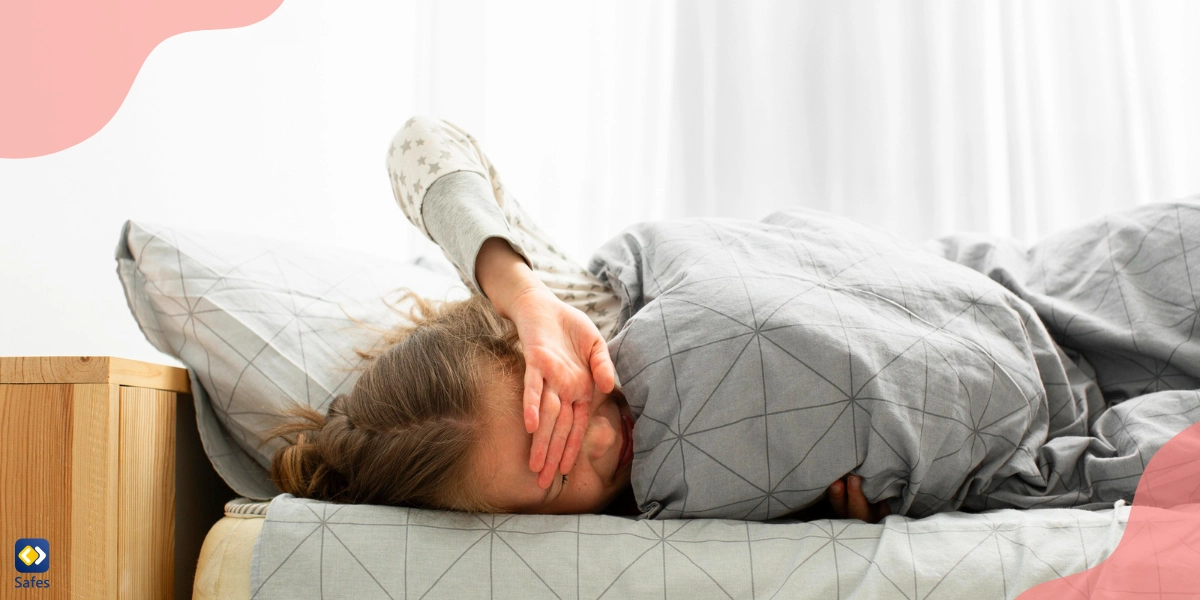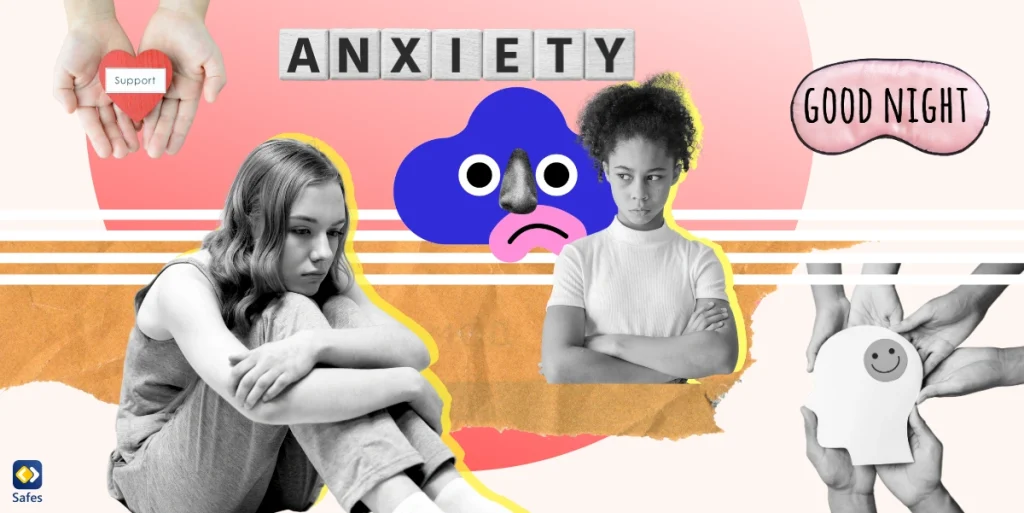Waking up can be distressing for some people. The sense of anxiety that people have when waking up and thinking about their day can affect their mental health. That’s why many parents want to know how to break the cycle of morning anxiety in children. In this blog post we’ll consider what morning anxiety is, how parents can deal with it themselves, and how they can help their children cope with it.
Download and Start Your Free Trial of the Safes Parental Control App
What is Morning Anxiety?
Morning anxiety is not a clinical term, but it does describe a common feeling that most people understand when you tell them about it. As the name suggests, the phenomenon refers to the sense of dread and anxiety that one might experience in the morning, usually after waking up.
Generalized Anxiety Disorder (GAD) is the clinical term used for anxiety, no matter the time that it occurs. To recognize that someone suffers from GAD, DSM-V, the manual for psychologists’ diagnoses, suggests criteria:
- Be worried about several events or activities more than not for a period of 6 months or longer
- Restlessness or feeling keyed up or on edge
- Being easily fatigued
- Difficulty concentrating or mind going blank
- Irritability
- Muscle tension
- Sleep disturbance (difficulty falling or staying asleep, or restless unsatisfying sleep)

How to Manage Morning Anxiety as a Parent
If you are suffering from morning anxiety as a parent, you might want to know how to manage it for the sake of your children and yourself. Luckily there are a few ways to do so:
- A well-crafted morning routine can serve as a soothing balm for anxious souls. Many adults don’t have a consistent wake-up time which can increase the chances of morning anxiety.
- Exercise for a short period of time in the morning can be hard to get used to but it does wonders for the rest of the day. The exercise can be simple gentle stretching.
- Making a plan for the day ahead the night before can reduce your stress for the day to come.
- Mediation and other mindfulness activities can go a long way when performed at the start of the day.
How to Stop Morning Anxiety in Children
With children, morning anxiety relief can be a bit more difficult. Some of the activities mentioned above aren’t usually met with open arms when suggested to children. Also, if children are experiencing morning anxiety, it’s cause for concern, so parents have to get to the bottom of the issue quickly. There are a few strategies parents can implement to get rid of morning anxiety in children. All of the tips mentioned below are self-care activities for kids that can be used in other circumstance too:
Promoting Open Communication
Communication is the cornerstone of addressing morning anxiety. Your child should feel comfortable talking about their morning anxiety, otherwise they won’t be able to solve the problem. If your child does talk to you about this anxiety, avoid denigrating it into a worthless problem. It should be a valid topic for discussion in your household.
Gradual Exposure to Triggers
A progressive exposure method can be beneficial if your child’s morning anxiety is driven by specific triggers. Work with them to create a hierarchy of stressful occurrences. Begin with the least distressing scenario and gradually work your way up the ladder. This way you can find the main stress triggers for your child.
Incorporating Relaxation Techniques
Relaxation techniques, such as deep breathing, progressive muscle relaxation, or guided imagery, can be valuable tools in managing morning anxiety. Practice these techniques with your child, integrating them into the morning routine. These methods can help your child regulate their breathing, reduce muscle tension, and promote an overall sense of calm.
Seeking Professional Guidance
Sometimes, morning anxiety may require professional intervention. If your child’s anxiety significantly impairs their daily functioning or causes severe distress, consider seeking the help of a mental health professional. Therapists can provide tailored strategies, such as cognitive-behavioral therapy or play therapy, to address the root causes of morning anxiety.

How Can Parental Controls Help Morning Anxiety?
For children, an important factor in morning anxiety is not having a scheduled bedtime. Most of the time, this is because they’re using their phones before going to bed. Apart from the fact that social media platforms and other apps and games keep them up, the blue light that is emitted from their screens also worsens their quality of sleep.
Using the parental controls on your child’s device, such as iPhone parental controls or parental controls on Android can help set a schedule for their bedtime. You can also use a parental control app like Safes to monitor your child’s digital well-being with much more control. Safes is available on iOS and Android. Feel free to start a 14-day free trial of Safes to see how it can give you more control over your child’s online activities. Using Safes you can:
- Limit your child’s screen time
- Set a schedule for their app usage for each individual app
- Track your child’s location in real time
- Be informed of your child’s location history
Conclusion
The cycle of morning anxiety can be a vicious one. It can worsen a person’s day, reducing their quality of life leading to worse sleep and things only go downhill from there. There are ways to calm morning anxiety both in adults and in children. Planning your child’s day, especially when they go to bed and when they wake up using parental controls can help a lot with morning anxiety.
Your Child’s Online Safety Starts Here
Every parent today needs a solution to manage screen time and keep their child safe online.
Without the right tools, digital risks and excessive screen time can impact children's well-being. Safes helps parents set healthy boundaries, monitor activity, and protect kids from online dangers—all with an easy-to-use app.
Take control of your child’s digital world. Learn more about Safes or download the app to start your free trial today!




